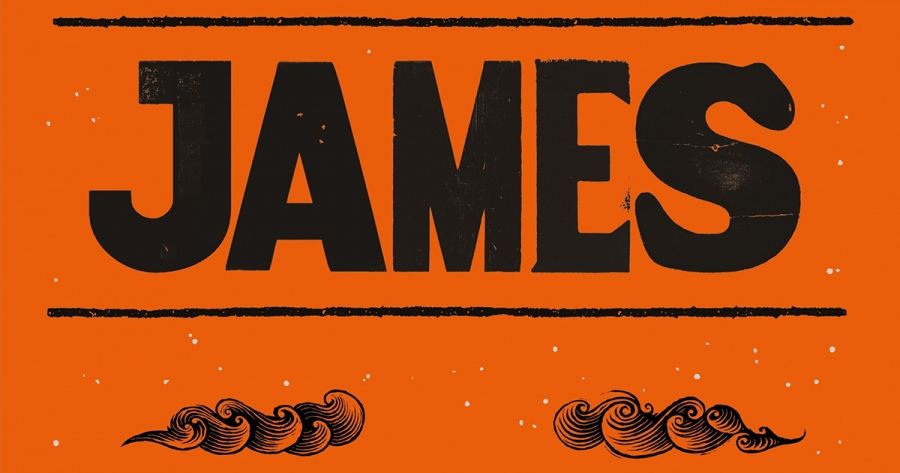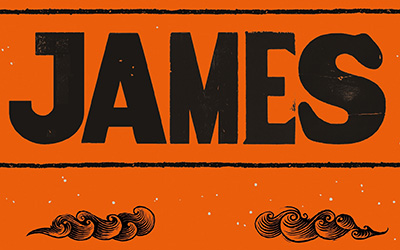
- Free Article: No
- Contents Category: Fiction
- Review Article: Yes
- Article Title: Writing his own life
- Article Subtitle: Mark Twain’s Jim reclaims his story
- Online Only: No
- Custom Highlight Text:
Percival Everett is a professor of English at the University of Southern California, and the author of numerous works of fiction published over the past forty years. Throughout his oeuvre, he has explored the ways in which texts engage with other texts, and has vigorously critiqued the persistent stereotyping of African Americans in the cultural history of the United States. His best-known novel is probably Erasure (2001), a complex satire directed at the publishing and media industries. Cord Jefferson’s recent adaptation of that novel, American Fiction, which won the Academy Award for Best Adapted Screenplay for 2023, has drawn further attention to Everett’s whole career. However, James, Everett’s reimagining of Mark Twain’s Adventures of Huckleberry Finn (1884), from the perspective of the escaped slave Jim, may prove to be his most critically and commercially successful work thus far.
- Featured Image (400px * 250px):

- Alt Tag (Featured Image): Heather Neilson review ‘James’ by Percival Everett
- Book 1 Title: James
- Book 1 Biblio: Pan Macmillan, $34.99 pb, 320 pp
- Book 1 Cover Small (400 x 600):

- Book 1 Cover (800 x 1200):

- Book 1 Readings Link: https://www.readings.com.au/product/9781035031245/james--percival-everett--2024--9781035031245#rac:jokjjzr6ly9m
Everett is clearly aware of the academic scholarship on Huckleberry Finn, including Shelley Fisher Fishkin’s ground-breaking work published in 1993, with the deliberately tantalising title Was Huck Black? Fishkin did not propose that Huck was literally African American but, rather, that the impact of African American language and culture upon Twain’s work, and mainstream American culture in general, had been underestimated. Jon Clinch’s novel Finn (2007) – another retelling of Huckleberry Finn, focused on ‘Pap’ – portrayed Huck as the result of his father’s liaison with a black woman. In Everett’s novel, a different hypothesis concerning Huck’s origins is proposed. But James is the story of Jim, not of Huck.
In his introduction to the Oxford World Classics edition of Huckleberry Finn, the late Emory Elliott commented on the tendency of readers to underestimate Jim’s shrewdness and stoicism. He cites the Phelps farm section late in the novel, after Jim has been abducted and sold behind Huckleberry’s back. When Huck goes in search of Jim, he is mistaken for Tom Sawyer, who turns out to be the Phelpses’ nephew. When Tom himself arrives shortly afterwards, he assumes the identity of his younger brother. He then subjects both Jim and his own relatives to a series of gratuitously unpleasant pranks in order to entertain himself. As Elliott remarks:
Were [Jim] to give in to his emotions and cry out to Huck to stop Tom’s idiotic games, Jim and his family could be lost forever […] Although we may have wished that freedom could have come to Jim more as the obvious result of his own agency, he does participate in his own liberation. His keen perceptions and judgments about whom to trust, when to act, and when to exercise caution are key reasons for his survival. Had Jim been less intelligent and calculating and less dedicated to his family, he would not have survived.
In his own depiction of Jim, Everett vividly conveys the fugitive slave’s astuteness and ingenuity, especially in the perilous company of a good-hearted but ignorant white boy.
Everett moves forward the action of Twain’s novel by about twenty years, so that in James the outbreak of the Civil War is imminent. Although key figures and events from Huckleberry Finn recur in James, Everett departs strategically from the source text, introducing the protagonist to a variety of new characters and tribulations. At one point, Jim becomes entangled with the composer Daniel Decatur Emmett, historically the manager of one of the first minstrel shows in the United States. With a fine tenor voice, Jim is even coerced into performing with Emmett’s troupe – a black man ludicrously disguised as a white man wearing blackface – until he escapes with the aid of another fugitive. Everett’s postmodern humour is punctuated with recognisably realistic episodes of brutality, the fate of a young slave who assists Jim a stark example.
The novel’s best joke is unveiled at the start. As narrator, Jim employs the vocabulary, syntax, and cultural knowledge of a formally educated man. His fellow slaves also speak this way. Self-preservation requires their pandering to the white masters’ presumptions of superiority by performing ‘in character’. Jim teaches his own and his neighbours’ children how to use their ‘slave filter’ in the vicinity of whitefolk: he rehearses them in the translation of their thoughts into the expected idioms of self-abasement.
‘Let them work to understand you. Mumble sometimes so they can have the satisfaction of telling you not to mumble. They enjoy the correction and thinking you’re stupid. Remember, the more they choose to not want to listen, the more we can say to one another around them.’ […] The children said together, ‘And the better they feel, the safer we are.’
The most unsafe secret that Jim keeps is the fact that he is literate. He has largely taught himself during clandestine visits to Judge Thatcher’s library, during the judge’s regular absences. In his dreams, he converses with Voltaire, Rousseau, and Locke. Throughout the periods of the journey when Jim is separated from Huck, he encounters various groups of slaves. Those to whom he reveals his ability to read and write urge him to record his story, sensing that his testimony could empower future generations even though it can do nothing for them.
While on the run, Jim reads one of the earliest known slave narratives – A Narrative of the Life and Adventures of Venture, first published in 1798. Jim finds Venture Smith’s ‘so-called self-related’ autobiography infuriating, surmising that Smith’s words had been embellished, or worse, by white editors. It is at this point that he forms the intention of writing his own life, as:
a man who is cognizant of his world, a man who has a family, who has been torn from his family, a man who can read and write, a man who will not let his story be self-related, but self-written.
Everett makes it clear that his ‘answer’ to Huckleberry Finn has emerged from a place of respect for Mark Twain, whose ‘humor and humanity affected me long before I became a writer’. James confirms Everett himself as one of the most accomplished and intriguing writers in the United States right now.


Comments powered by CComment